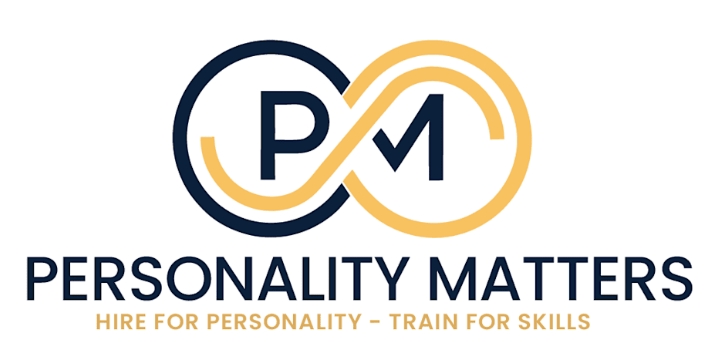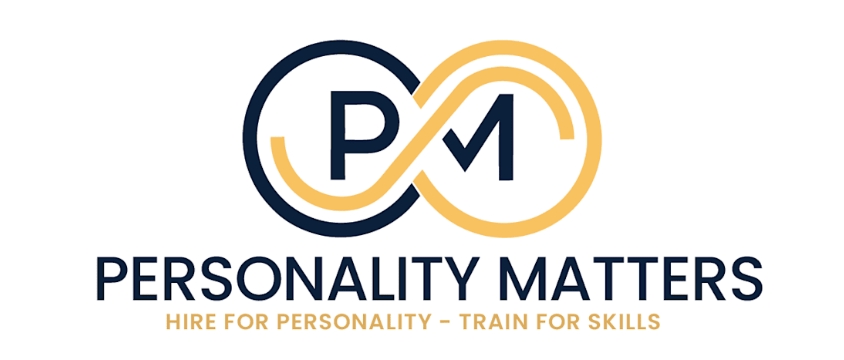The recruitment landscape has evolved significantly over the years, with companies constantly adapting to meet the changing demands of the workforce. As organizations compete for top talent, they face a variety of challenges, many of which are driven by a rapidly shifting market, new technologies, and changing expectations from candidates. One solution that has gained significant traction in addressing these challenges is personality hiring.
Personality hiring focuses on assessing a candidate’s personality traits and how they align with the company’s values, culture, and team dynamics. By focusing on the holistic profile of a candidate, beyond just skills and qualifications, personality hiring can help address some of the most pressing recruitment problems companies face today. Let’s take a closer look at some of these challenges and explore how personality hiring can provide solutions.
1. High Employee Turnover
One of the most significant challenges organizations face is high employee turnover. Constant hiring and training of new employees not only disrupts team dynamics but also incurs substantial costs. According to research, turnover can cost companies anywhere from 30% to 50% of an employee’s annual salary, depending on their role and seniority.
How Personality Hiring Helps:
Personality hiring ensures that employees are a strong cultural and personality fit for the company, which directly impacts retention rates. By evaluating candidates’ behavioral traits, emotional intelligence, and interpersonal skills, hiring managers can determine whether a candidate’s natural tendencies align with the role and the company’s environment. Employees who are aligned with the company’s culture and values are more likely to stay long-term because they feel a sense of belonging, satisfaction, and purpose within their roles. This alignment reduces the likelihood of mismatches that lead to resignations or job dissatisfaction.
2. Difficulty Finding Candidates Who Fit Company Culture
A key challenge in recruitment today is finding candidates who fit seamlessly into a company’s culture. Many organizations struggle with hiring for culture fit, as it’s often subjective and difficult to quantify. Employees who don’t mesh well with the company’s culture may struggle to collaborate effectively, leading to lower productivity and a toxic work environment.
How Personality Hiring Helps:
Personality hiring involves assessing traits such as adaptability, communication style, and work preferences. By using personality assessments, recruiters can identify candidates who naturally align with the organization’s values and cultural expectations. For example, a company that values teamwork and open communication might seek individuals with strong interpersonal skills and a collaborative nature. A candidate who is naturally introverted, for instance, might thrive in roles that require independent work. Personality assessments allow companies to make more objective, data-driven decisions when it comes to cultural fit, helping build cohesive, high-performing teams.
3. Struggling to Identify Soft Skills
Soft skills such as communication, problem-solving, empathy, and emotional intelligence are often the differentiators between good and great employees. However, these skills are notoriously difficult to assess through traditional recruitment methods like reviewing resumes and conducting interviews. Employers may find that their new hires excel technically but struggle to collaborate effectively, communicate with colleagues, or handle stress.
How Personality Hiring Helps:
Personality assessments are designed to reveal soft skills by evaluating traits like emotional intelligence, resilience, teamwork, and conflict resolution. For instance, if a job requires high levels of empathy and customer service, a personality assessment can pinpoint candidates with these traits. By understanding a candidate’s natural tendencies and behavioral patterns, recruiters can identify whether they possess the soft skills necessary for success in the role. This helps reduce the risk of hiring candidates with strong technical skills but poor interpersonal capabilities, ultimately ensuring that new hires are equipped to thrive in a team-oriented environment.
4. Time-Consuming Recruitment Processes
In the competitive job market, time is of the essence. Recruitment teams are often overwhelmed by an influx of applications and are tasked with shortlisting and interviewing a large pool of candidates. This process can be time-consuming and costly, and at times, it’s difficult to make quick and accurate hiring decisions. The traditional recruitment process doesn’t always provide enough information to make a well-rounded decision, leading to prolonged hiring timelines.
How Personality Hiring Helps:
By incorporating personality assessments into the recruitment process, hiring managers can streamline their decision-making process. These tools provide a deeper understanding of candidates in a fraction of the time it would take to conduct multiple rounds of interviews or lengthy reference checks. With personality assessments, recruiters can quickly identify candidates who are a strong fit for the role and the company culture, reducing the need for time-consuming interviews with candidates who may not align. This leads to faster hiring decisions, ultimately saving time and resources in the recruitment process.
5. Inconsistent Hiring Decisions
Recruitment decisions are often influenced by unconscious biases, where interviewers may gravitate toward candidates with similar backgrounds, experiences, or personalities. This can result in a lack of diversity in hiring, and organizations may end up hiring individuals who are more similar to the existing team, rather than those who can bring fresh perspectives or challenge the status quo.
How Personality Hiring Helps:
Personality hiring helps mitigate unconscious bias by focusing on objective data gathered through personality assessments, rather than subjective impressions formed during interviews. By looking at traits like openness to experience, problem-solving abilities, and adaptability, recruiters can evaluate candidates based on their natural attributes, not just their appearance, background, or first impression. This fosters diversity and inclusion by ensuring that hiring decisions are made based on the qualities that contribute to success in the role, leading to a more diverse and well-rounded team.
6. Difficulty Assessing Potential and Future Performance
Another recruitment challenge is identifying candidates who have the potential for growth within the organization. It’s not always easy to predict how a candidate will perform in the long term or whether they’ll adapt to evolving company needs. Hiring managers may prioritize experience or skills but fail to assess how well a candidate can handle change, take initiative, or grow into leadership roles.
How Personality Hiring Helps:
Personality assessments provide insight into a candidate’s potential for growth by assessing traits like motivation, adaptability, and learning agility. These traits are often strong indicators of future success, as candidates who are open to new ideas, enjoy challenges, and are driven to develop their skills are more likely to succeed and grow within an organization. By hiring candidates with high potential and the right personality traits, companies can develop their talent pipeline and foster long-term success.
Conclusion
As recruitment challenges continue to evolve, personality hiring has emerged as a powerful solution to many of the problems organizations face. By focusing on a candidate’s personality, emotional intelligence, and cultural fit, companies can make more informed, data-driven hiring decisions that align with their long-term goals. Personality hiring helps reduce turnover, improves team dynamics, identifies soft skills, accelerates the recruitment process, and reduces bias, all while helping organizations build a workforce that’s motivated, diverse, and aligned with company values.
In today’s competitive talent market, embracing personality hiring is no longer just a trend; it’s a smart, strategic approach to building a successful, high-performing team.














